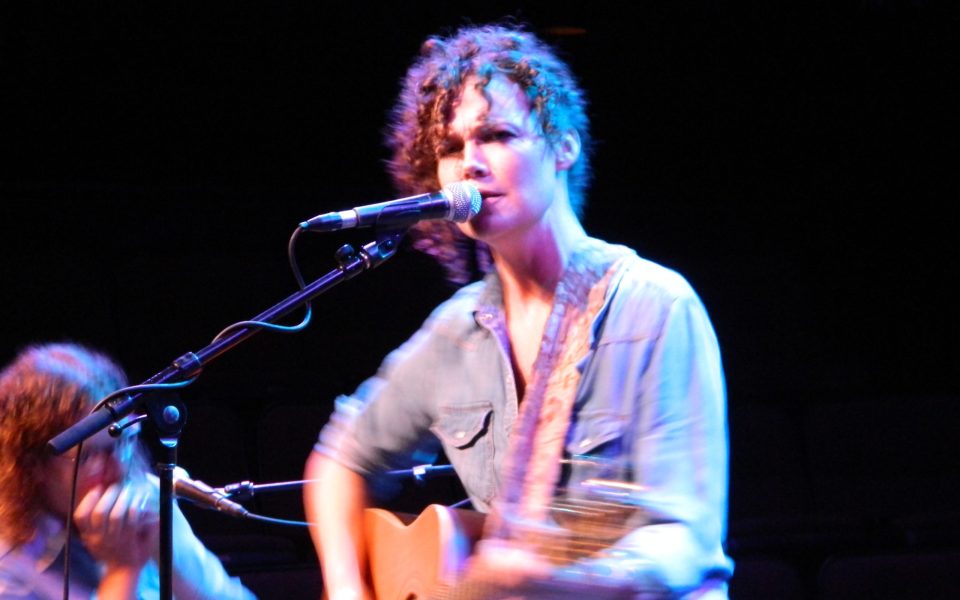Phuzz Phest co-presented the mock horror movie Lace Crater — about a young woman who hooks up with a ghost during a drug-fueled weekend in the Hamptons, no less — during RiverRun International Film Festival in Winston-Salem last month.
It’s the first time the two festivals — one dedicated to indie rock and the other to cinema — have collaborated. For the record, a year ago I proposed that Phuzz Phest and RiverRun cross-promote their programming, so it’s gratifying to see that the two festivals have done just that. The tie-in is intuitive here: Lace Crater was scored by Alan Palomo — frontman for the Brooklyn-based chillwave band Neon Indian, who were one of the headliners at Phuzz Phest.
As an aside, I also have to note that in the same article, “It Just Might Work: RiverRun, shake hands with Phuzz,” I proposed that Phuzz Phest add music-related seminars to its programming. And voila, this year, WFDD staffer and musician Eddie Garcia hosted a panel discussion on sustaining local music communities. I’m batting two for two!
We definitely need to build on the cross-pollination initiated here. And one excellent idea for strengthening the relationship between the two festivals that would benefit both musicians and filmmakers landed in my lap during a recent lunch meeting with Americana artist Molly McGinn and electronica vocalist/producer Anna Luisa Daigneult, aka Quilla (she performed at Phuzz Phest this year). It’s McGinn’s idea, but she gave me her blessing to run with it, so here goes.
McGinn proposed a “summit” between filmmakers and musicians on scoring soundtracks and placing songs in movies. McGinn told me that for a lot of musicians, figuring out how to get music placed in films can be a real mystery, and she perceives that music is often an afterthought for filmmakers resulting in them making do with whatever they can afford from what’s left of their meager budgets. What if they started working together from the outset of the project? With a more intentional process, musicians would likely produce an auditory complement that is more integrated with the vision of the film as opposed to the filmmakers.
Collaboration and exposure on multiple platforms is the only way to advance a career in the music business today — just ask Beyoncé. The time when an artist put out an album and promoted it as their primary commodity and source of income is long past in this era of free music streaming. Exposure through song placements in film and TV can make all the difference in helping an artist break through the noise in an overcrowded marketplace. The relationship can be mutually beneficial; a solid soundtrack can help an otherwise decent cinematic work achieve lasting impact.
Join the First Amendment Society, a membership that goes directly to funding TCB‘s newsroom.
We believe that reporting can save the world.
The TCB First Amendment Society recognizes the vital role of a free, unfettered press with a bundling of local experiences designed to build community, and unique engagements with our newsroom that will help you understand, and shape, local journalism’s critical role in uplifting the people in our cities.
All revenue goes directly into the newsroom as reporters’ salaries and freelance commissions.


Leave a Reply